Learn Chinese Idiom with Pinyin and English
- Idiom in Chinese-善男信女。
- Pinyin of Idiom– shàn nán xìn nǚ.
- Idiom’s Meaning in English– This idiom refers to devout Buddhist or Taoist followers, especially women. It describes people who believe sincerely in a religion or ideology and follow its teachings faithfully. They are often seen visiting temples, monasteries, or shrines to offer prayers and perform religious rites.
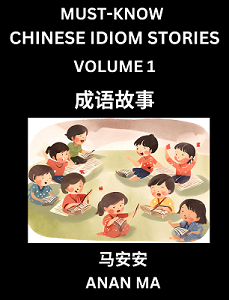
Chinese Idiom Stories Books (HSK All Levels):
- Books to Learn Chinese Idiom Stories (Part 1)
- Books to Learn Chinese Idiom Stories (Part 2)
- Books to Learn Chinese Idiom Stories (Part 3)
Learn Chinese Idiom Story in English (成语故事的英文)
Once upon a time, there was a simple rural woman who was deeply devoted to Buddhism. She often visited the nearby temple to worship and learn from the monks there. Despite her poverty, she would donate whatever she could, such as grain or clothes, to help the monks in the temple. Her sincerity and kindness moved the abbot of the temple, who personally explained the Buddhist teachings to her and guided her in her spiritual practice.
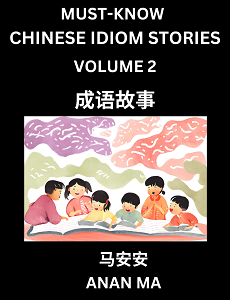
Gradually, the woman found inner peace and happiness. Her example inspired others in the community, and more people began to embrace Buddhism, becoming devout followers like her. This story embodies the essence of the idiom “shàn nán xìn nǚ,” representing those who are sincerely devoted to a religion or ideology.

Learn Idiom Story in Chinese (成语故事)
善男信女这个成语来源于佛教文化,它原本指的是虔诚信仰佛教、经常参与佛事活动的男子和女子。在古代,这些善男信女们常常前往寺庙,聆听高僧讲经说法,学习佛法,并通过诵经、礼佛、布施等方式来表达自己的信仰和敬意。
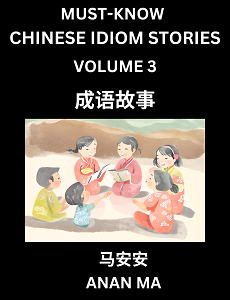
有一个关于善男信女的故事,讲述了一个普通的农村妇女,因为信仰佛教,经常到附近的寺庙参拜。她虽然生活贫困,但每次去寺庙都会尽自己所能地捐献一些粮食或衣物,帮助寺庙里的僧人。她的虔诚和善良感动了寺庙的住持,住持亲自为她讲解佛法,帮助她修行。后来,这位妇女不仅自己得到了内心的平静和幸福,还影响了周围的人们,让更多的人开始信仰佛教,成为了善男信女。
Learn Keywords with English, Simplified Chinese Characters, and Pinyin (关键词)
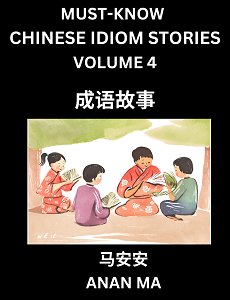
- 善男信女 (shàn nán xìn nǚ): devout Buddhist followers (虔诚的佛教信徒)
- 寺庙 (sì miào): temple (寺庙)
- 参拜 (cān bài): to worship (参拜)
- 僧人 (sēng rén): Buddhist monk (佛教僧人)
- 虔诚 (qián chéng): sincere (虔诚的)
- 善良 (shàn liáng): kind-hearted (善良的)
- 佛法 (fó fǎ): Buddhist teachings (佛法)
- 修行 (xiū xíng): to practice religion (修行)
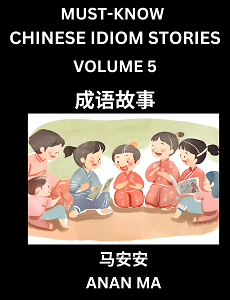
Pinyin of Idiom Story (故事的拼音)
Shànnánxìnnǚ zhège chéngyǔ láiyuán yú fójiào wénhuà, tā yuánběn zhǐ de shì qiánchéng xìnyǎng fójiào, jīngcháng cānyù fóshì huódòng de nánzǐ hé nǚzǐ. Zài gǔdài, zhèxiē shànnánxìnnǚmen chángcháng qiánwǎng sìmiào, língtīng gāosēng jiǎng jīng shuōfǎ, xuéxí fófǎ, bìng tōngguò sòng jīng, lǐfó, bùshī děng fāngshì lái biǎodá zìjǐ de xìnyǎng hé jìngyì.
Yǒu yīgè guānyú shànnánxìnnǚ de gùshì, jiǎngshùle yīgè pǔtōng de nóngcūn fùnǚ, yīn wéi xìnyǎng fójiào, jīngcháng dào fùjìn de sìmiào cānbài. Tā suīrán shēnghuó pínkùn, dàn měi cì qù sìmiào dūhuì jǐn zi jǐ suǒ néng de juānxiàn yīxiē liángshí huò yīwù, bāngzhù sìmiào lǐ de sēngrén. Tā de qiánchéng hé shànliáng gǎndòngle sìmiào de zhùchí, zhùchí qīnzì wéi tā jiǎngjiě fófǎ, bāngzhù tā xiūxíng. Hòulái, zhè wèi fùnǚ bùjǐn zìjǐ dédàole nèixīn de píngjìng hé xìngfú, hái yǐngxiǎngle zhōuwéi de rénmen, ràng gèng duō de rén kāishǐ xìnyǎng fójiào, chéngwéile shànnánxìnnǚ.




